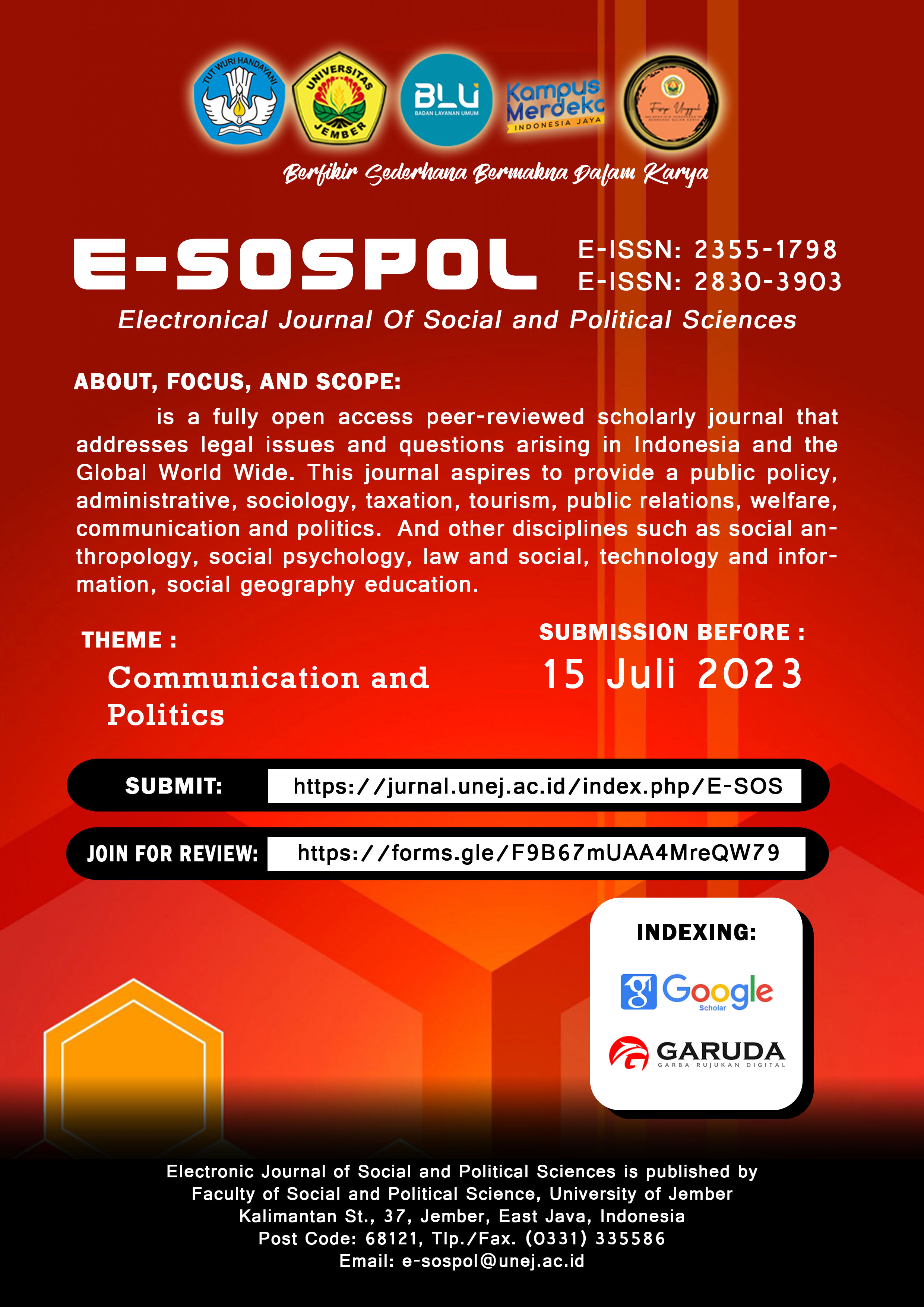Krisis Kemanusiaan dan Upaya Thailand Mengatasi Gelombang Pengungsi Rohingya
Abstract
Abstract
Myanmar is a country which is highly vulnerable to ethnic conflict. It is a risk for Myanmar as a multiethnic country which has 135 ethnics. In 2012 and 2015, the worst intensity of the conflict was in Rakhine region. There was conflict between Rakhine Buddhist ethnic and Rohingya minority ethnic. This conflict caused 140,000 Rohingya people had to flee in 2012, and the number continued to increase as the continuation of the uprising, slaughter and expulsion carried out by Rakhine Buddhists ethnic. As a result, in 2012 to 2015, there was a wave of Rohingya refugees from Myanmar towards neighboring countries. The wave itself was out of control. One of the destination countries of Rohingya refugees was Thailand. This caused Thailand has the responsibility to provide humanitarian assistance in accordance with the principle of "responsibility to protect". However, Thailand efforts to overcome the wave of Rohingya refugees turned out not to be realized maximally as evidenced by the continuing Rohingya humanitarian crisis. Therefore, this study aims to determine what factors that caused Thailand could not realize the principle of Responsibility to Protect optimally. This study used qualitative descriptive and library research. The results showed that the realization of the responsibility to protect as an effort of Thailand to overcome the wave of Rohingya refugees Thailand could not be done optimally because Thailand as part of the international community was only responsible to encourage Myanmar to protect the Rohingya people, but the full sovereignty in this case belonged to Myanmar. On the other hand, Myanmar even was uncooperative and refused to take responsibility over cases of humanitarian crisis suffered by the Rohingya people.
Penulis yang mengusulkan naskahnya untuk dapat diproses penerbitannya pada e-SOSPOL dianggap telah menyetujui beberapa hal sebagai berikut:
1. Penulis tidak dapat menarik naskah yang telah usulkan untuk diproses hingga mendapat jawaban dari Ketua Dewan Penyunting atas status naskah artikel ilmiahnya (diterima atau ditolak untuk diterbitkan).
2. Penerbit tidak bertanggung jawab terhadap kasus plagiasi atas artikel yang terbit pada e-SOSPOL
3. Penerbit tidak bertanggung jawab atas data dan isi dari artikel yang diterbitkan pada e-SOSPOL, dan sepenuhnya merupakan tanggung jawab penulis.






.png)

